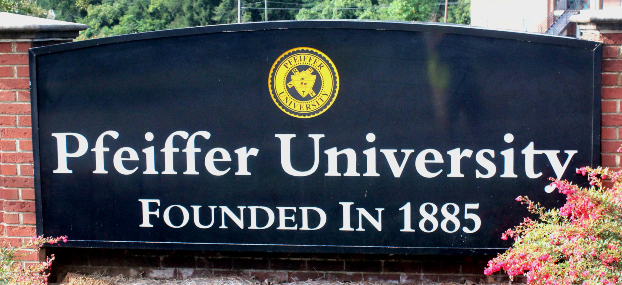Locust Council approves police department to start K-9 program
Published 10:22 am Tuesday, May 18, 2021

- Locust North Carolina
|
Getting your Trinity Audio player ready...
|
The Locust City Council Thursday night gave the green-light for the police department to move ahead and start its own K-9 program.
LPD plans to purchase a no-biting labrador retriever, which would be used for detecting narcotics and tracking, though there’s no timetable for when that will happen. The dog would be the partner of Cpl. Dwayne Dietz, who was recently named the 2020 Chief Steven “Smitty” Smith Officer of the Year for the city.
The department expects to have its policies in place regarding the K-9 program by the beginning of July.
With heavy amounts of narcotics regularly traveling through the city every day via major corridors like N.C. Highway 24-27, Assistant Police Chief Kevin O’Connor said the dog would be an added resource to help address the problem.
“We’re blessed to not see it (drugs) every day, but it doesn’t mean it’s not here and the best weapon we have against that is to get ahead of the curve and increase our ability to work these types of cases and a trained police canine is absolutely one of the best tools we can have,” O’Connor said.
The dog would be trained to spot drugs such as opioids, cocaine, heroin and methamphetamine.
LPD currently has to contact other agencies for K-9 assistance and the dogs are not always available. Starting a K-9 program of its own would give LPD more control and flexibility over its operations.
Locust is slated to become the fourth law enforcement agency in the county to have a K-9 program, behind Stanly County Sheriff’s Office, Stanfield Police and Oakboro Police, which added its own K-9 program earlier this year.
Besides helping with drug interdiction and investigations, a K-9 officer would also help locate missing or wanted individuals and would be a tool to build relationships with the community, O’Connor said. He noted that a trained retriever has a 91 percent average success rate of locating individuals.
The dog will be featured at Locust Elementary School events and the students will choose the name of the K-9 officer.
The department would purchase the dog from Ventosa Kennel, a police K-9 training facility, in Scotland Neck, just north of Rocky Mount. Dietz would go through about a four-week training program with the dog.
The dog would work the same schedule as its handler Dietz, which would be about 14 days a month.
The initial start-up cost for the dog would be $20,798, which includes training and up-fitting Dietz’ vehicle. The annual program cost would be about $5,000m which would cover food, veterinarian bills and equipment.
Retired Charlotte-Mecklenburg Police Sgt. Brian Russell, who helped create the department’s K-9 program in the 1990s and has worked with dogs the majority of his career, spoke to council at length about the benefits of having K-9 officers on the force.
As someone who has overseen the training of hundreds of police dogs during his career, Russell would supervise the in-house training of the retriever, which would generally consist of about eight hours of remedial training a month.
Russell mentioned that the career of a police retriever tended to be longer than other police dogs that are used to bite and attack people, like German shepherds or Belgian malinois.
For the program to be successful, the department would have to exercise proper discretion for when to deploy the dog, said Councilman Mike Haigler. The former police chief said that overusing police dogs can lead to bad relations between a department and the community it serves.
While a few council members were initially hesitant to a K-9 program, after hearing from Russell about what would be expected, the council unanimously approved the program.
“I think it will be a valuable tool and I trust all your guys,” Councilwoman Mandy Watson told O’Connor, noting it would be worth it if the dog is able to save even one missing person or child each year.
Mayor Steve Huber called the council’s decision to approve the program “a total win” for the city.



